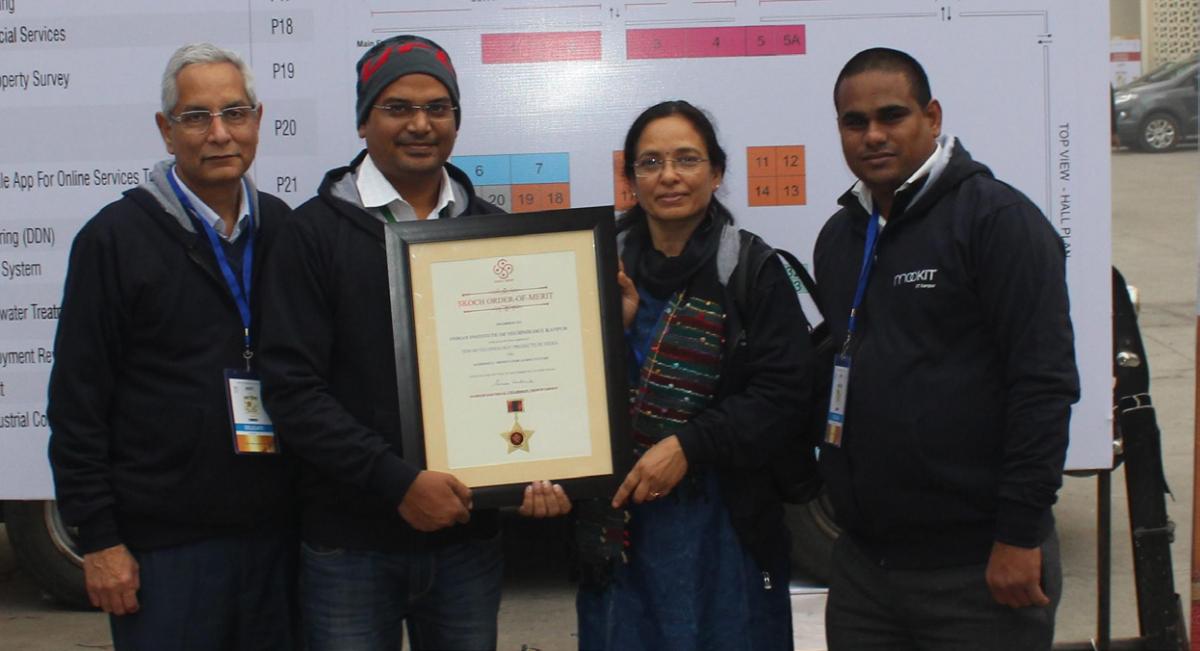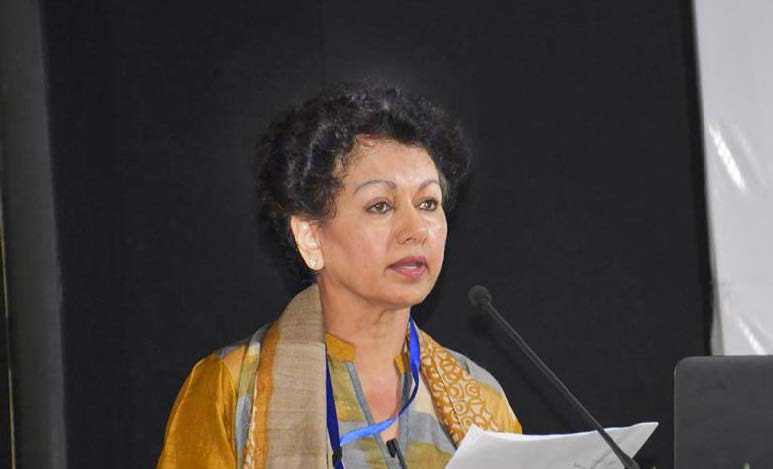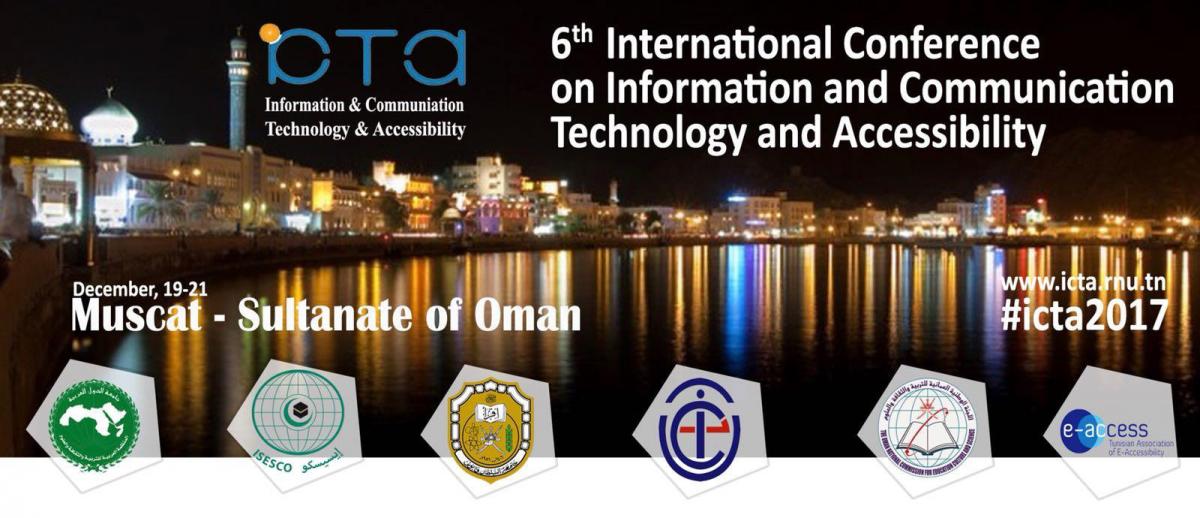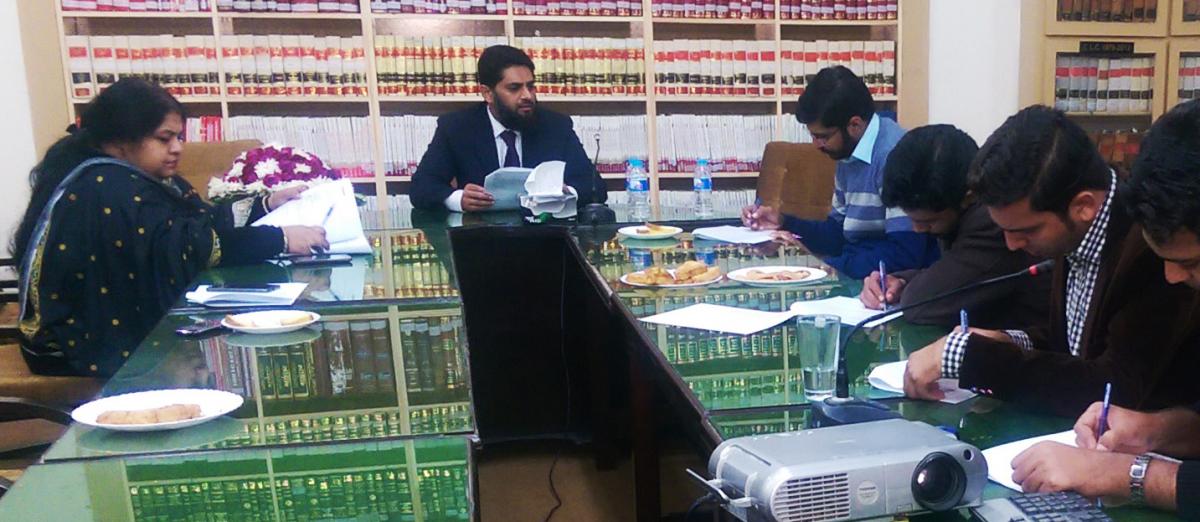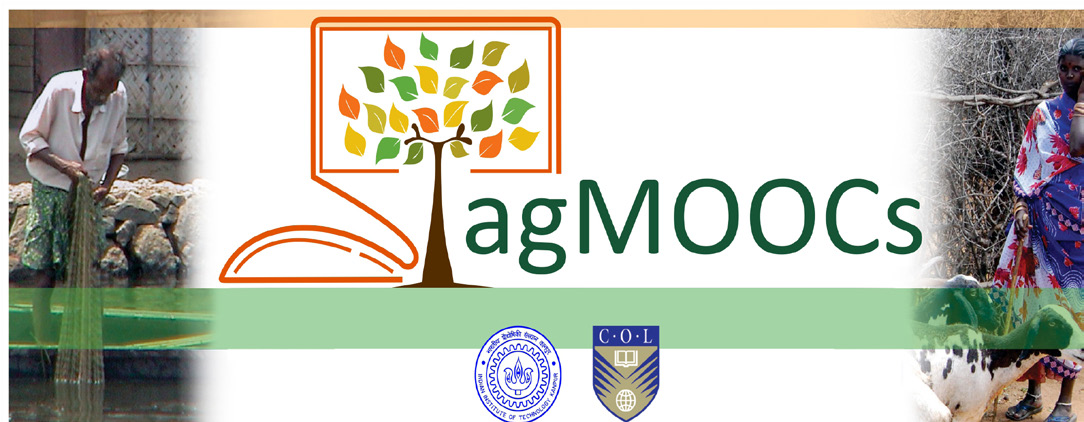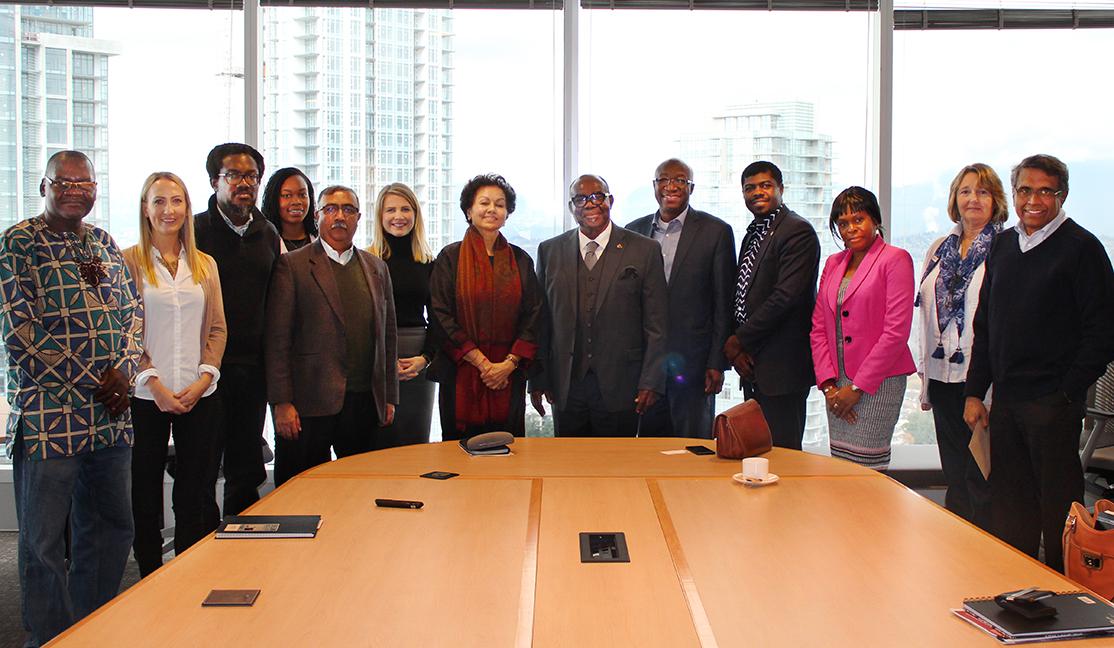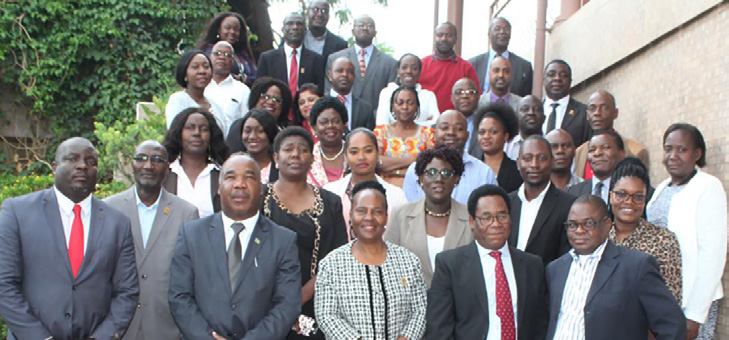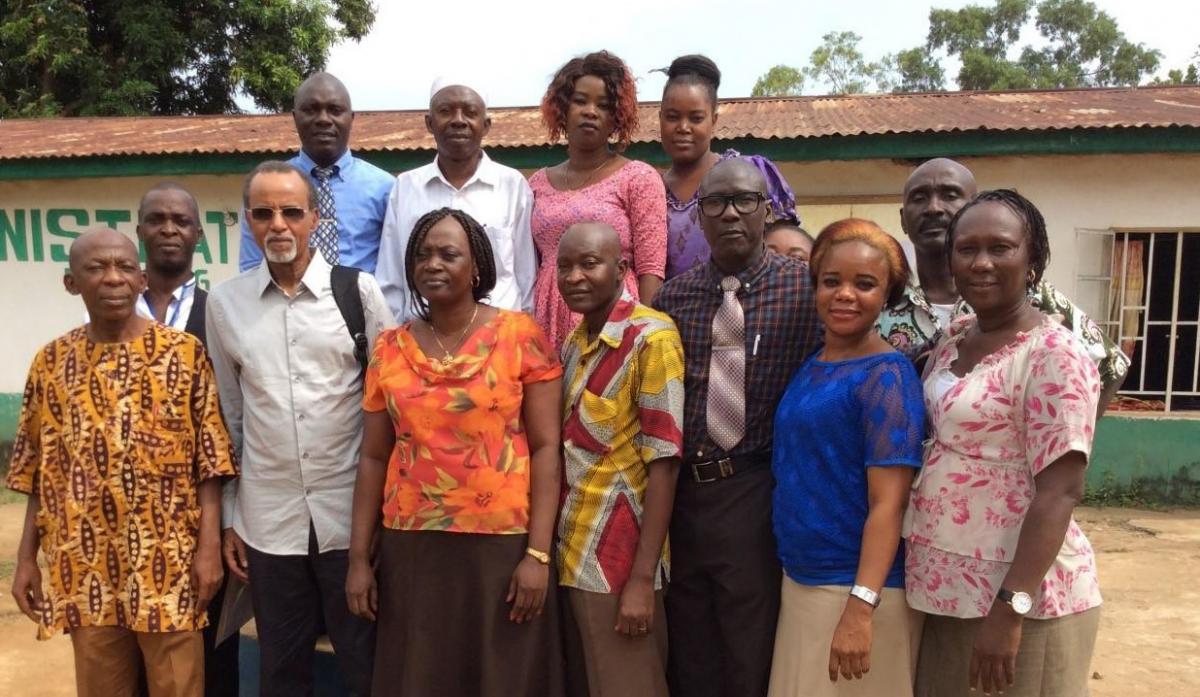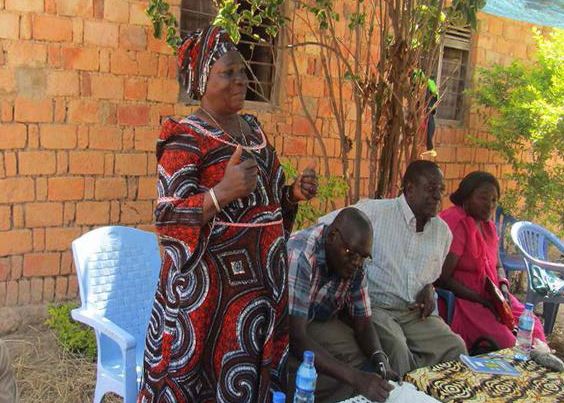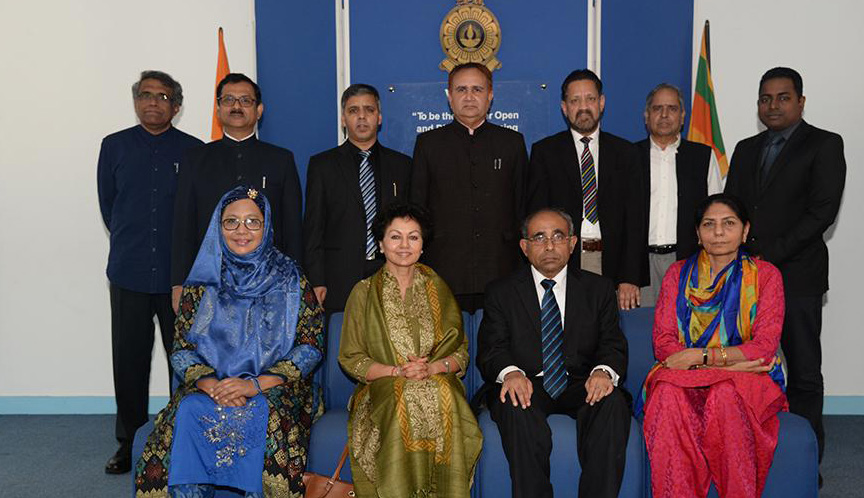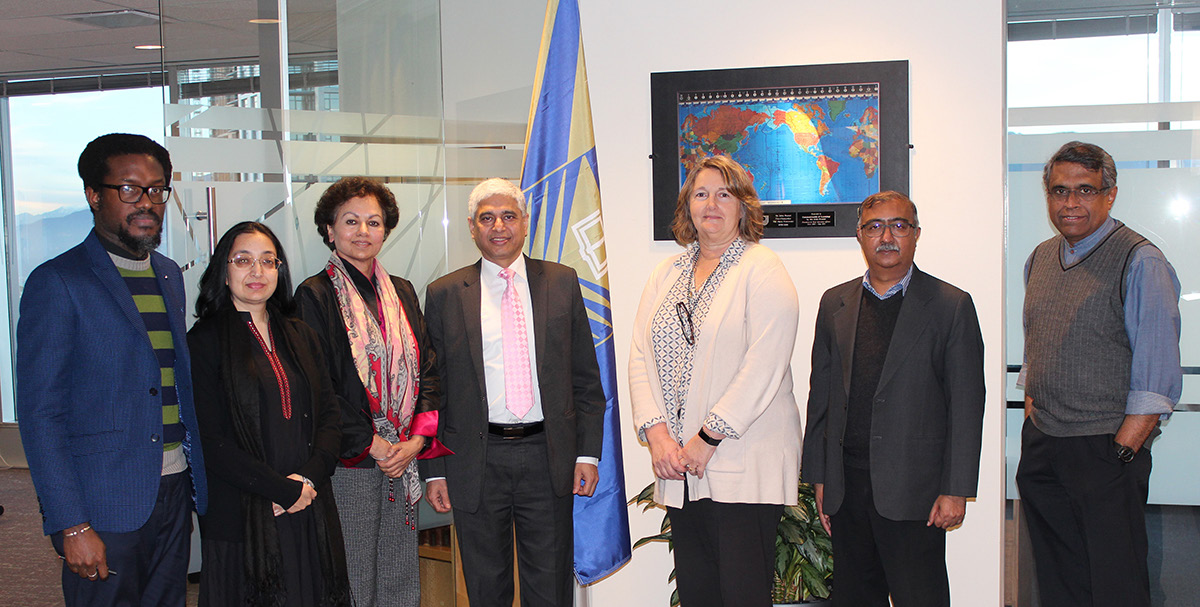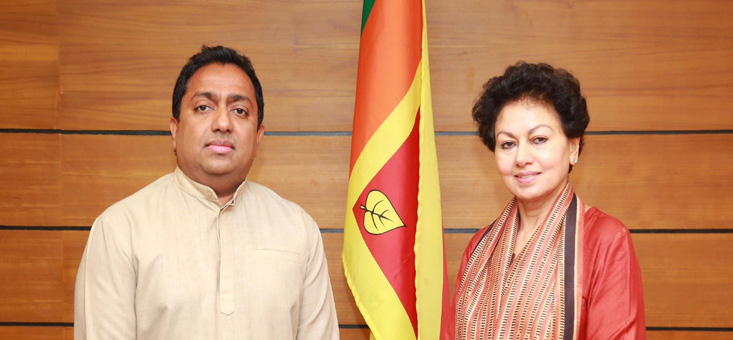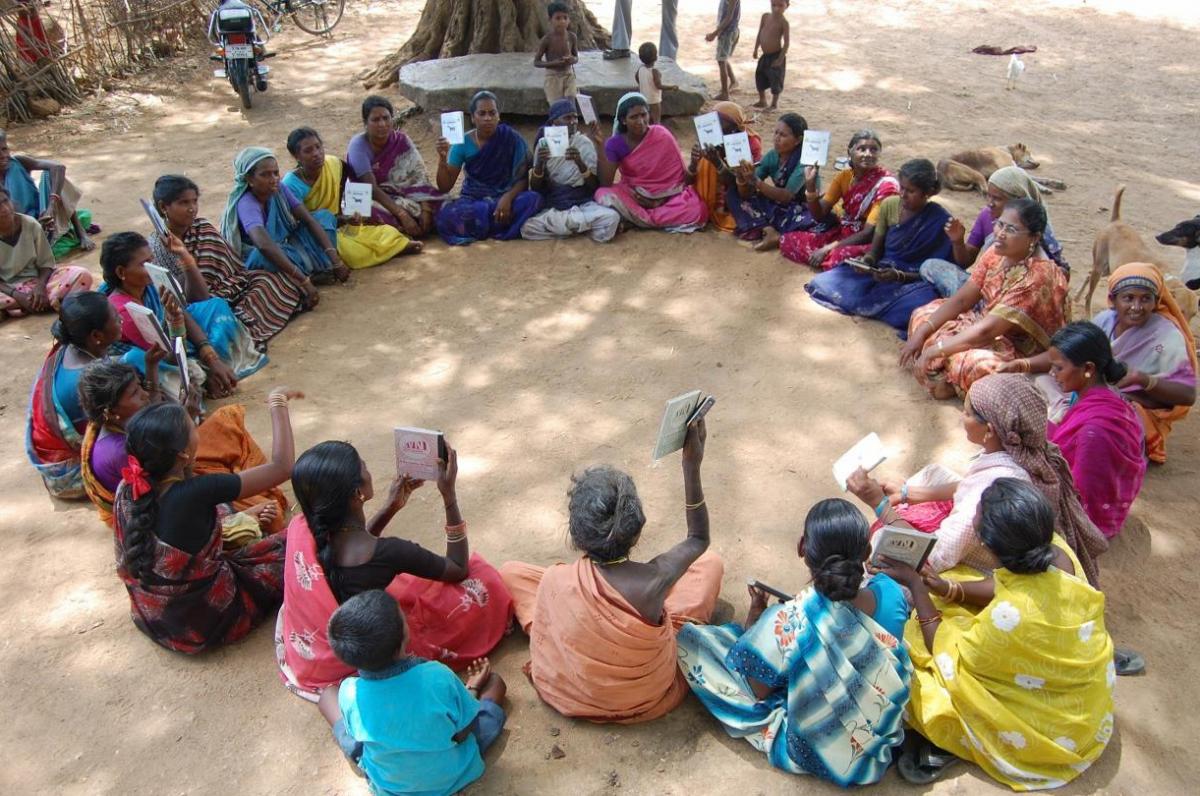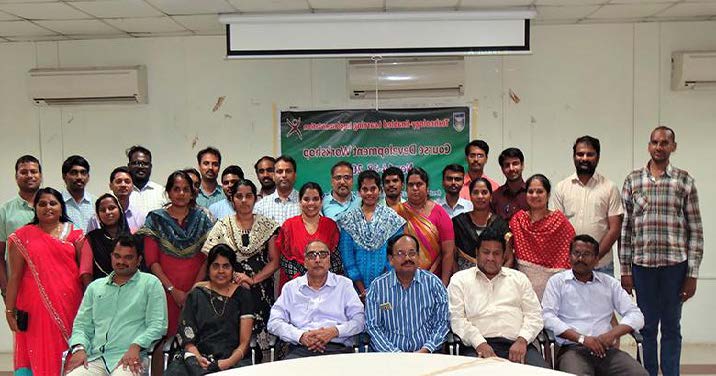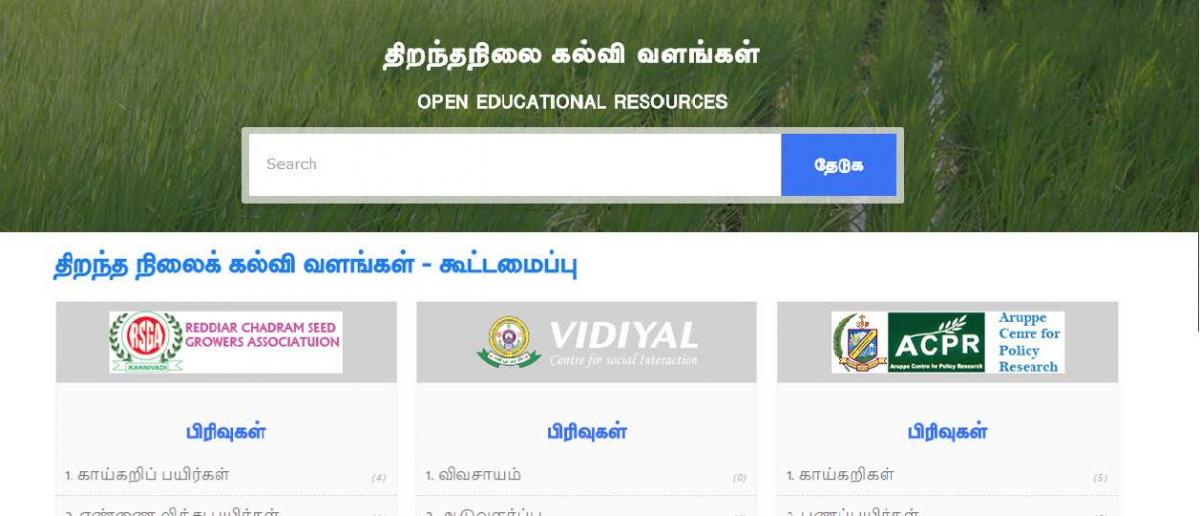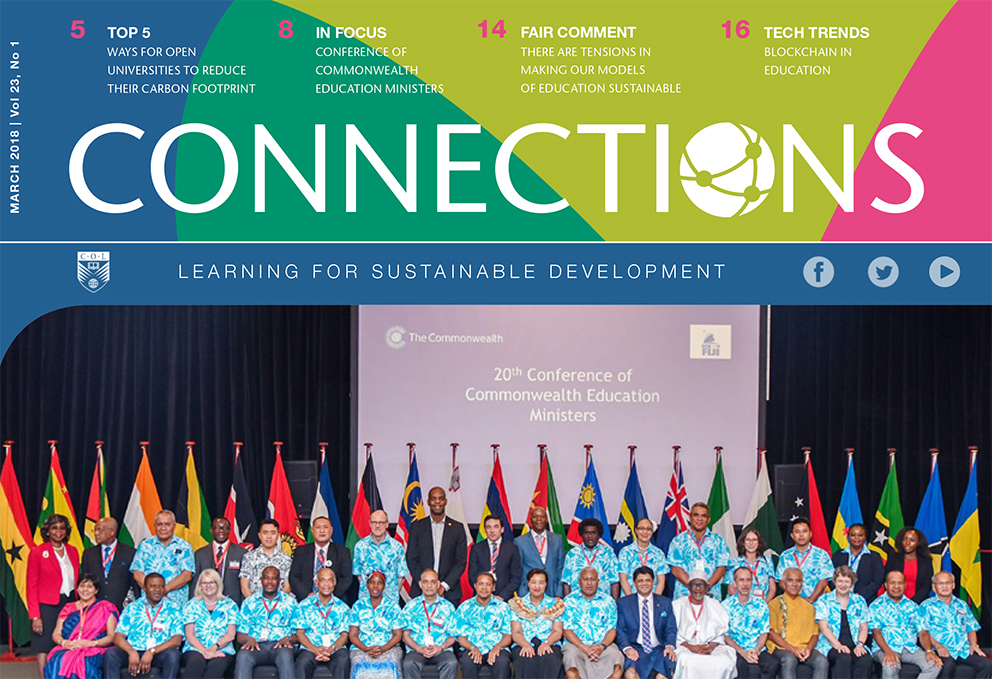
Delegates at the 20th Conference of Commonwealth Education Ministers. (Credit: Department of Information, Government of Fiji)
Download the digital version (PDF and ePub format) from OAsis
Sign up to receive email updates from COL.
COVER STORY
2018 Nadi Declaration
Ministers recognise COL’s work over 30 years
Delegates from 34 Commonwealth Member States gathered in Nadi, Fiji for the 20th Conference of Commonwealth Education Ministers (20CCEM), from 19 to 23 February 2018. The theme of 20CCEM was “Sustainability and Resilience: Can Education Deliver?”
The Nadi Declaration was adopted on 23 February 2018 at the final session of 20CCEM. The Declaration outlined the priorities and agenda for education across the Commonwealth for the next three years (2018-2021).
Building on the outcomes of 19CCEM, ministers reaffirmed that education is a fundamental human right and is indispensable for achieving sustainable development. They expressed a commitment to ensuring inclusive and equitable quality education and to promoting lifelong learning opportunities for all.
Ministers recognised the valuable service provided by the Commonwealth of Learning (COL) over the last 30 years. They appreciated COL’s focus on promoting learning for sustainable development through the use of technologies as well as its emphasis on lifelong learning for employment, entrepreneurship and empowerment, all of which support the ongoing efforts of Member States to achieve Sustainable Development Goal 4.
COL was also commended for the growing impact of the Virtual University for Small States of the Commonwealth in strengthening tertiary education in small states, and for its global leadership in open educational resources and innovation in educational technologies. COL President and CEO, Professor Asha Kanwar, said, “COL will work in partnership with sister organisations and stakeholders in the field to ensure that development outcomes are not just achieved but exceeded.”
REGIONAL NEWS
PAN-COMMONWEALTH
JL4D seeks contributors
Contributors are invited for the Journal of Learning for Development, which focuses on innovation in learning – in particular, but not exclusively, open and distance learning and its role in development. Your contributions can take the form of research articles, case studies, commentaries and reports from the field. Please visit the journal’s website for more details and to submit your work.
COL celebrates International Women’s Day 2018
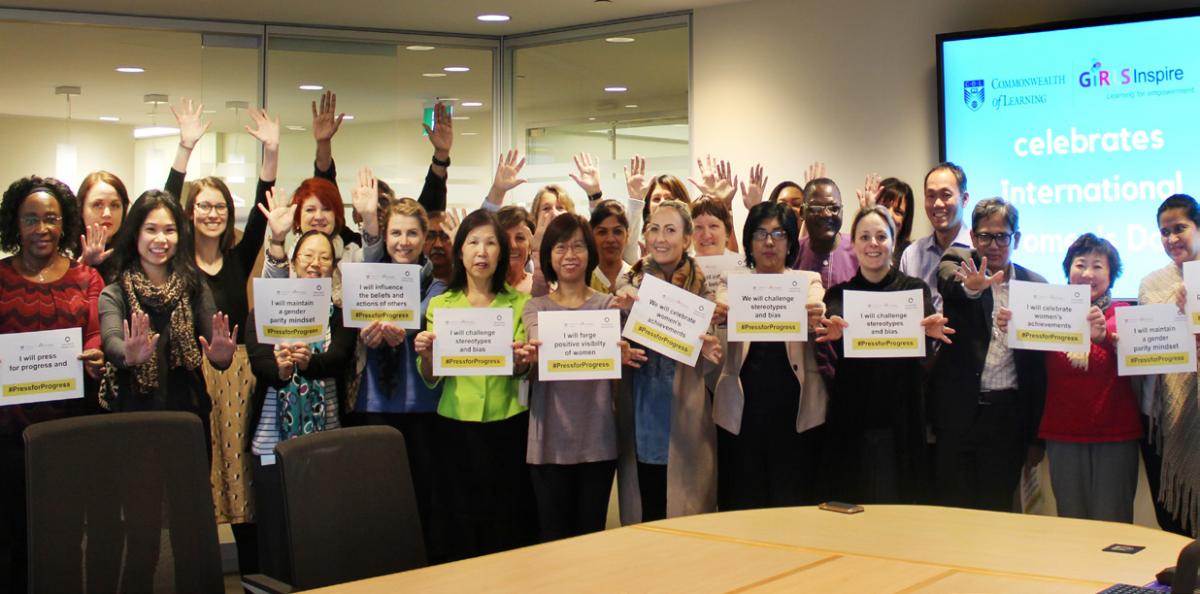 COL celebrated International Women’s Day on 8 March by highlighting this year’s theme, “Press for Progress.”
COL celebrated International Women’s Day on 8 March by highlighting this year’s theme, “Press for Progress.”
In a video message, Professor Asha Kanwar noted that “a top priority for COL is to close the gender gap by promoting women’s economic empowerment through access to learning.”
“Each contribution we make towards women’s equality and empowerment is a building block towards establishing a society where women and girls will have equal rights and opportunities,” said COL’s Senior Adviser: Women and Girls, Frances Ferreira.
agMOOCs receive Skoch Gold award
agMOOCs, a project conceptualised by COL, received a Skoch Gold award in the “Technologies for Growth” category at the recent 50th Skoch Summit in New Delhi. This award recognises innovative efforts in technology, business and social development, with an emphasis on start-ups.
agMOOCs was designed to help learners acquire and enhance their knowledge and skills in agriculture. COL’s partner institution, the Indian Institute of Technology, Kanpur (IITK), serves as the anchor institution and manages the project using the mooKIT platform, which contains a number of innovations that enable access even in conditions of very limited bandwidth. To date, over a dozen agMOOCs have been offered, attracting more than 13,000 learners from 90 countries.
Professor T. V. Prabhakar (left) of IITK received the award on behalf of the agMOOC consortium.
In order to transform society, ODL must first transform itself
“Can open and distance learning (ODL) contribute to development and transform societies? How can we extend our reach to cover more people and places by adopting effective methods and ideas?” These were the questions that Professor Asha Kanwar posed to participants in her keynote address at the International Conference on Development Interventions and Open Learning for Empowering and Transforming Society, held at Krishna Kanta Handiqui State Open University, Guwahati, India in December 2017.
“At COL, we have found that if we want to reach unreached people, we must adopt a targeted approach,” said ProfesÂsor Kanwar.
Emphasising that ODL has reached people in previously unreached places with methods and innovative ideas that have made educational success possible, Professor Kanwar mentioned examples of communities from around the Commonwealth that have been positively impacted by COL’s work. She pointed out that learners must be at the centre of every activity and be encouraged to become active producers of open educational resources.
ODL for persons with disabilities?
COL President and CEO, Professor Asha Kanwar stressed the need for more institutions to make special efforts to design open and distance learning (ODL) offerings for persons with disabilities (PWDs), in her keynote address at the 6th International Conference on Information and Communication Technology and Accessibility, in Muscat, Sultanate of Oman, in December 2017. Much more needs to be done, and ODL institutions can take the lead in this regard.
“Research shows that more and more people with disabilities are joining ODL institutions,” said Professor Kanwar. She pointed out four reasons why ODL presents better opportunities: “First, ODL is convenient for PWDs as they can study at their own pace, place and time. They don’t need to travel to campus or seek accommodation near the institution. Second, ODL is more flexible and offers content in various formats so learners can read, listen to or watch lectures. Third, ODL is more affordable as it costs significantly less than campus-based instruction. Finally, ODL also provides a degree of anonymity – where students with disabilities can interact with professors and peers withÂout feeling discriminated against.”
MOOC on technology-enabled learning reaches 94 countries
A massive open online course (MOOC) titled Introduction to TechÂnology-Enabled Learning (TEL), offered jointly by COL and Athabasca University, Canada attracted 3,926 participants from 94 countries. Of these participants, about 40 per cent were female teachers, and the highest numbers of registrants were from Bangladesh, Barbados, Canada, India, Mauritius, Rwanda and South Africa. The MOOC covered issues related to integrating technology in teaching and learning in secondary, post-secondary and vocational education. This five-week course required approximately three to five hours per week from the participants and offered flexible options for learning the content to accommodate busy schedules. The course equipped learners with the knowledge to use appropriate technoloÂgies and online resources, including open educational resources, to improve student learning.
CEMBA/CEMPA programme offers good economic return for graduates
A recent study commissioned by COL has shown that the Commonwealth Executive Master’s in Business Administration and Public Administration (CEMBA/CEMPA) programme yielded an increase of more than CAD 200 in graduates’ monthly earnings/income. The study, conducted at Allama Iqbal Open University (AIOU), Pakistan, revealed that for every dollar a student invested in CEMBA/CEMPA, an average return of CAD 3.39 was received. There was also an increase of 28.5 percentage points in the probability of gaining a managerial position, which corresponded to more than twice that probability in 2012 for the treatment group.
COL is collaborating with 11 higher education institutions across the Commonwealth to offer the CEMBA/CEMPA programme, which is designed for part-time study by busy working professionals, in response to growing demands for post-graduate education in business and public administration.
Associate Professor Salman Qureshi (middle) of AIOU, conducting interviews during the study.
New agMOOCs launched
agMOOCs, a consortium supported by COL, launched two new MOOCs in February 2018, with over 6,400 learners signing up for both courses: (1) Fundamentals of Agricultural Extension and (2) Integrated Disease ManÂagement. An innovation in these MOOCs is the deployment of messaging apps, which enable learners to participate in real-time discussion spaces.These MOOCs also allow learners to download course videos directly to their devices so they can view course materials frequently and on demand. As repeated access to online video materials can be expensive for many learners, direct downloading lowers costs and improves access to learning.
Within a week of the launch, 40 per cent of participants had used the messaging app to access the courses, indicating that learners are recepÂtive to the agMOOCs approach of deploying messaging systems in online learning platforms.
AFRICA
Ghana’s High Commissioner to Canada visits COL
Ghana’s High Commissioner to Canada, H.E. Joseph Ayikoi Otoo, and his delegation visited COL headquarters in November 2017. Professor Asha Kanwar briefed the High Commissioner on COL’s work in Member States, particularly Ghana. COL’s Vice President and colleagues highlighted key activities taking place in some of the institutions in Ghana, including universities, technical institutes and civil society organisations.
The High Commissioner commended COL’s efforts and stated that COL’s work was important in helping Member States to improve their educational capacity. He expressed his country’s desire to partner with COL in supporting farmers in Ghana and equipping its graduates with modern entrepreneurial skills.
Canadian Deputy Minister visits GIRLS Inspire project in Mozambique
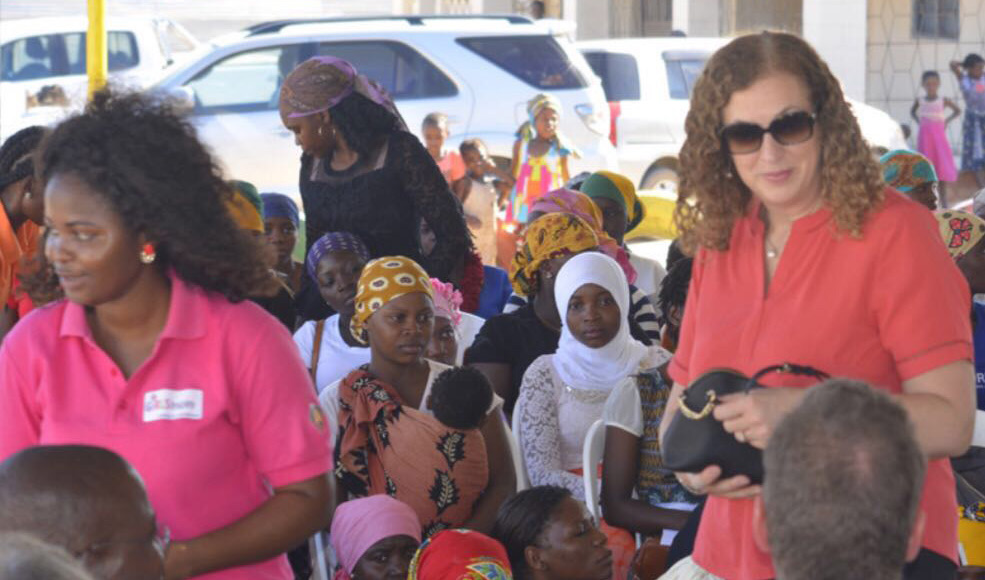
Canada’s Deputy Minister of International Development, Ms Diane Jacovella, appreciated the positive impact that COL’s GIRLS Inspire project is having on the women and girls being trained in Nacala Porto, Nampula Province, Mozambique. The deputy minister visited the province recently to see first-hand the barriers these learners experience, and how child, early and forced marriage (CEFM) can be prevented.
During a tour of project partners, the deputy minister had the opportunity to meet with women and girls undergoing training in a variety of vocational courses and attended a presentation on the plight of the girl child and the root causes of CEFM. Ms JacovÂella noted that the interventions by the GIRLS Inspire project had contributed to changing the lives of these women and girls and had empowered them to have voices within their communities.
Higher education pilot launches in Zambia
COL and the University of Zambia (UNZA) are collaborating on a pilot of COL’s higher education integrated model. The aim of this pilot is to harness the potential of open and distance learning to increase access and improve the quality of courses in dual-mode universities. The pilot was launched at a project design workshop held at UNZA in November 2017. The workshop focused on delivering high-quality distance education and eLearning programmes.
BOCODOL is now Botswana Open University
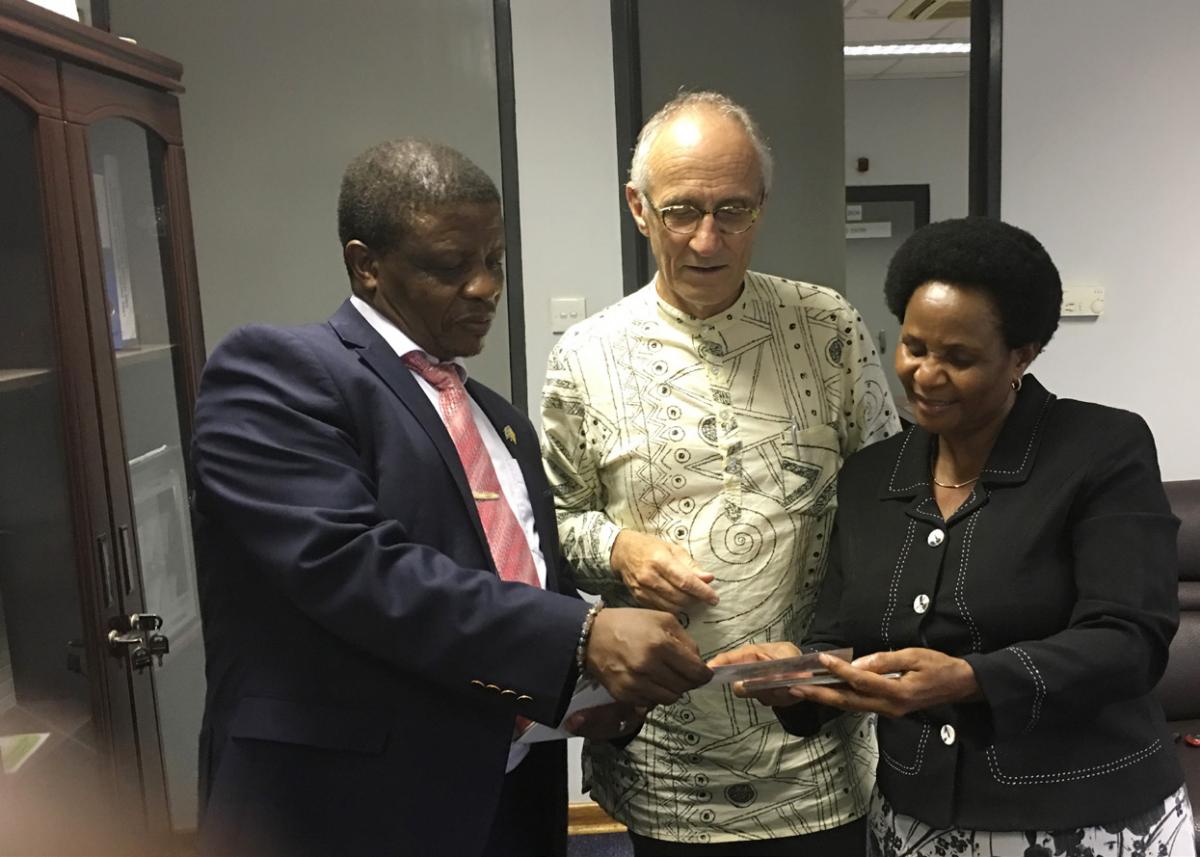 COL’s President sent a congratulatory message to the Botswana Open University (BOU) on transitioning from the Botswana College of Open and Distance Learning (BOCODOL) into an open university, effective 1 December 2017. COL assisted BOCODOL during the transition process by providÂing technical advice and reviewing the institution’s systems, and by supporting capacity building in open educational resources, information and communication technologies (ICT) and open and distance learning (ODL).
COL’s President sent a congratulatory message to the Botswana Open University (BOU) on transitioning from the Botswana College of Open and Distance Learning (BOCODOL) into an open university, effective 1 December 2017. COL assisted BOCODOL during the transition process by providÂing technical advice and reviewing the institution’s systems, and by supporting capacity building in open educational resources, information and communication technologies (ICT) and open and distance learning (ODL).
BOCODOL was a committed member of the Virtual University for Small States of the Commonwealth and housed the Southern African Development Community’s Centre for Distance Education. The new university’s mandate is to make education accessible to all in Botswana, especially out-of-school youths and adults, through the use of ODL.
Left to right: BOU’s first Vice Chancellor, Dr Daniel Tau; COL Senior Adviser: Open Schooling, Dr Johan Hendrikz; and COL’s Focal Point in Botswana, Ms Fancy Amey.
Course in business for sustainable development with OUM
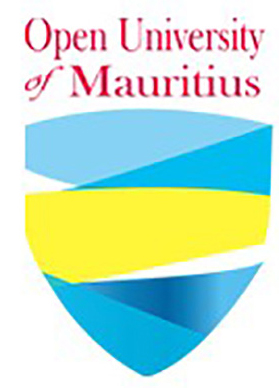 Recognising the importance of global goals for sustainable development, and in an effort to assist business leaders with adopting sustainable practices, COL has partnered with the Open University of Mauritius (OUM) to develop a course on business for sustainable development, which will become part of the Commonwealth Executive Master of Business Administration programme.
Recognising the importance of global goals for sustainable development, and in an effort to assist business leaders with adopting sustainable practices, COL has partnered with the Open University of Mauritius (OUM) to develop a course on business for sustainable development, which will become part of the Commonwealth Executive Master of Business Administration programme.
A two-day workshop for course writers was facilitated by COL’s Education Specialist: eLearning, Dr Sanjaya Mishra, at OUM in November 2017 to develop a blueprint for the course and integrate open educational resources.
Speaking on the significance of the course, COL’s Education Specialist: Higher Education, Professor Romeela Mohee, said: “The course is being developed to address the growing needs of stakeholders to respond to the sustainability chalÂlenges of the world and in particular SDG12 on sustainable production and consumption. The learners in this course will not only understand the inter-linkages of the sustainable development goals, but will also develop competencies to apply sustainable practices in different sectors of business and industry.”
Teachers trained in Sierra Leone
A baseline survey conducted by COL in collaboration with Freetown Teachers College (FTC) has revealed that teachers in Sierra Leone are receptive to technology-supported teacher professional developÂment, despite infrastructural and Internet connectivity challenges in their schools.
The study indicated that mobile technology is used by 55 per cent of teachers and 70 per cent of teacher educators in the institutions sampled, and that over 90 per cent of these teachers and teacher educators prefer to use their mobile devices not only to access microlearning and eLearning resources, but to participate in online and messaging-based communities of practice. The survey was part of the preparatory activities for COL’s Teacher Futures programme in Sierra Leone, which aims to improve teacher quality through school-based, technology-supported professional development. This programme helps equip teacher education institutions to deliver effective learning opportunities for sustainable development.
The survey team was led by Professor Muhammad Ibn Junaid and comprised five FTC staff members, who interviewed teachers and head teachers in 13 secondary schools as well as staff at FTC.
Professor Muhammad Ibn Junaid (third left) with staff at King Fahad Junior Secondary School in Freetown, who participated in a COL-supported baseline survey.
L3F model adopted by regional government in Tanzania
Tanzania’s Kagera region recently adopted COL’s Lifelong Learning for Farmers (L3F) model. In implementing this model, the regional government will be utilising open and distance learning, including mobile learning and traditional face-to-face approaches, to train farmers in the region.
The regional government acknowledged the efforts of COL’s partner Matumaini Mapya in supporting agricultural extension services through a mobile learning system, which has increased farmers’ awareness, simplified their means of communication and linked them with financial institutions. With the L3F model, more farmers will have access to extension services and information and communication technologies to improve their farming practices.
ASIA
CEMCA Advisory Council meets in Sri Lanka
The Commonwealth Educational Media Centre for Asia (CEMCA) Advisory Council held its 17th annual meeting at the Open University of Sri Lanka, Colombo in December 2017 in partnership with the Ministry of Education. Representatives from Bangladesh, India, Malaysia and Sri Lanka participated. The meeting was chaired by COL President and CEO, Professor Asha Kanwar, who highlighted the priorities of COL and CEMCA and stressed the need to continuously create learning opportunities for citizens of the Commonwealth.
“CEMCA should develop and nurture a network of leaders in open and distance learning across Asia, who can be called upon to provide technical advice,” Professor Kanwar said.
CEMCA’s Director, Dr Shahid Rasool, presented the annual report and update on programme activities. The members of the Advisory Council appreciated CEMCA’s work within the region in promoting cooperation and collaboration in the use of electronic media resources for distance education.
India’s High Commissioner to Canada visits COL
H.E. Mr Vikas Swarup, India’s High Commissioner to Canada, visited COL in January 2018 to familiarise himself with COL’s work. During his visit, he said that “COL meets a very important lacuna in India, and its work impacts people on the ground.” Professor Asha Kanwar briefed the High Commissioner on COL’s work in Member States, particularly India. Mr Swarup was accompanied by the Consul-General of India in Vancouver, Ms Abhilasha Joshi.
COL President meets Sri Lanka’s Minister of Education
Professor Asha Kanwar recently met with Sri Lanka’s Minister of Education, the Honourable Akila Viraj Kariyawasam, and the Secretary, Ministry of Education, Mr Sunil Hettiarachchi, to provide an update on COL’s work in Sri Lanka. The minister appreciated COL’s work and requested further technical support for the implementation of capacity-development programmes for teachers and educational personnel.
L3F women borrowers in India set new record
More than 30,000 women in Tamil Nadu, India who were supported by COL to build capacity in their farming practices and business skills borrowed a total of USD 12 million from commercial banks over the past two years. During this period, the women farmers also repaid 98 per cent of these loans.
Through COL’s Lifelong Learning for Farmers (L3F) partner VIDIYAL, these women were mobilised into groups and taken through structured learning, focused on sustainable farming practices, financial literacy, corporate literacy and enterprise development. They were able to establish farmer-producer companies under India’s Companies Act and become major shareholders in these companies.
Speaking on L3F’s work in Tamil Nadu, Professor Asha Kanwar said, “COL catalyses the partnerships between communities, experts, financial institutions, ICT providers and the market to create a win-win situation for all. COL utilises open and distance learning strategies, as well as ICT resources such as mobile phones and community radios, to facilitate a continuous learning process for these women in their own languages. These efforts not only benefit the women but bring about positive change in their families and communities.”
India’s RGUKT adopts TEL
With support from COL, Rajiv Gandhi University of Knowledge TechÂnologies (RGUKT) developed a technology-enabled learning (TEL) policy to integrate technology in teaching, learning and assessment and is now systematically implementing the policy through the development of courses.COL’s engagement at RGUKT is transforming teaching and learning processes to match the learning preferences of students. At a jointly organised Blended Course Development workshop, held in November 2017, courses in language, mathematics and engineering were developed to be offered to students in the semester starting February 2018.
Inaugurating the workshop, the Vice Chancellor of RGUKT, Professor V. Ramachandra Raju, said: “RGUKT has been taking important steps to make technology-enabled learning part of its DNA. Thanks to COL for guiding the university and its faculty to implement TEL systematically.”
RGUKT’s Director of the Centre for Educational Technology and Learning Sciences, Professor V. Venkaiah, coordinated the event and emphasised that “the workshop supported by COL is helping develop internal capacity and trainers who can assist other teachers in RGUKT to implement blended course development.
CEMCA to offer Life Skills for Engineers MOOC
The Commonwealth Educational Media Centre for Asia (CEMCA) recently announced the offering of a massive open online course (MOOC) titled Life Skills for Engineers, starting in May 2018. In preparation, COL and CEMCA held a workshop at the Indian Institute of Technology, Kanpur (IITK) to finalise content design, orientate faculty and create the course calendar for this MOOC. The mooKIT platform, which was developed by IITK with COL’s input, will be used.
The interactive workshop was facilitated by Dr V. Balaji of COL and ProÂfessor T. V. Prabhakar of IITK and coordinated by Dr Manas Panigrahi of CEMCA. Participants included senior faculty from a variety of institutions who will conduct the MOOC. Professor H. C. Verma, a well-known writer of physics textbooks whose own MOOC had about 57,000 learners, and Professor B. Jirli explained the usefulness of the dynamic analytic data captured by mooKIT for making mid-course alterations.
The MOOC will be offered in two phases, with Professor R. Ivaturi of the University of Hyderabad, India as the course director.
OER for non-formal education in Tamil
COL, in collaboration with Arul Anandar College (AAC), Reddiarchatram Seed Growers’ Association (RSGA) and VIDIYAL, will launch the Tamil Nadu Lifelong Learning for Farmers OER Federation in India in March 2018. This open educational resources (OER) repository, named L3fpedia, was created by farmers for farmers in Tamil Nadu in their native Tamil language. L3fpedia, which contains OER provided by multiple institutions and organisations, offers an easy-to-use single interface for users seeking farming-related OER.
Speaking on the objective of this project, COL Adviser: OER, Dr Ishan Abeywardena, said, “The novelty of this new OER federation is its ability to support the livelihoods of farmers through non-formal education delivered in their native language. Further, this project addresses the recommendations in the Ljubljana OER Action Plan 2017 under ‘language and cultural issues’ through the use of user-friendly technology.”
COL’s Lifelong Learning for Farmers initiative empowers farming communities using open, distance and flexible learning. With COL’s support, the partners have developed 150 quality-assured OER courses to be shared through L3fpedia, based on an extensive needs analysis.


